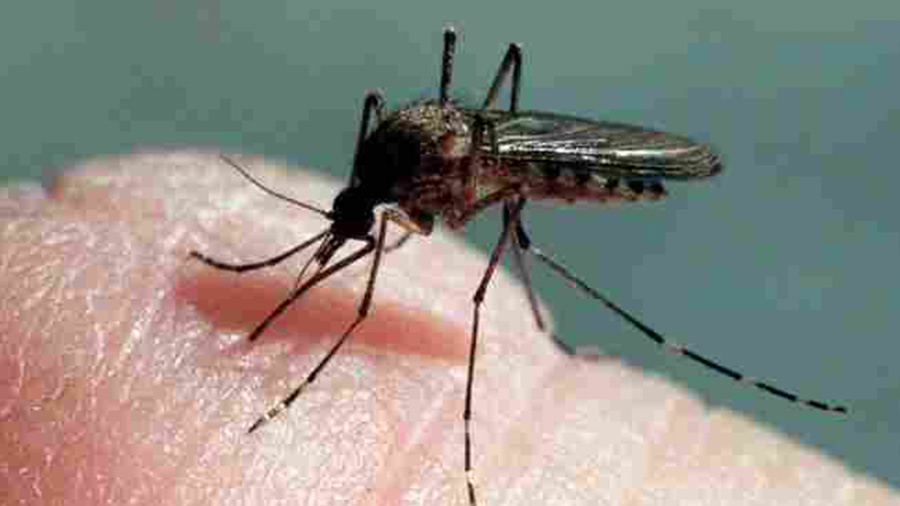Door-to-door visits, spraying of larvicide at regular intervals and organising fever camps in select pockets are some of the measures the Bidhannagar Municipal Corporation will take as part of its dengue prevention drive.
A senior official of the civic body’s health department said door-to-door visits are set to start on an “intensive scale” on Monday.
Surveyors will visit houses across all 41 wards of the municipal corporation and ask residents whether anyone in the family has been suffering from fever and enquire about the symptoms as well.
The surveyors will be accompanied by trained vector control workers who will check for accumulated freshwater in the houses as well as in garages, common areas and gardens. Dengue, which claimed many lives in the state last year, is spread by the Aedes aegypti mosquito, which lays eggs is stagnant freshwater. Since it takes around seven days since eggs are laid for adult mosquitoes to emerge, public health experts urge people to drain out stagnant water at homes and other places at least once a week.
“If we find accumulation of freshwater anywhere, we will immediately spray larvicide and alert the occupants of the house. They must ensure that freshwater doesn’t accumulate and the house and its immediate surroundings must be kept clean,” the official said.
Banibrata Banerjee, mayoral council member in charge of health at the Bidhannagar civic body, said eight cases of dengue had been reported from Salt Lake, Kestopur, Baguiati, Chinar Park and other areas since January.
“We don’t want to take any chance and have decided to launch the anti-dengue drive. We are also planning to set up rapid response teams in each borough. Those will be in addition to the regular teams deployed in places from where dengue cases are reported,” Banerjee said.
The rapid response teams will include officials from the health department, vector-control experts and workers from the solid waste management department.
“It is not enough to spray larvicide in places where dengue cases are being detected. We also need to remove garbage that can turn into breeding grounds for mosquitoes,” said Banerjee.
“We will also organise fever camps in places where we find that a lot of people are down with fever.” The state government’s core committee on prevention and management of dengue, made up of health officials and representatives of district administrations, met earlier this week to review the preventive measures in place. The meeting was chaired by the chief secretary
